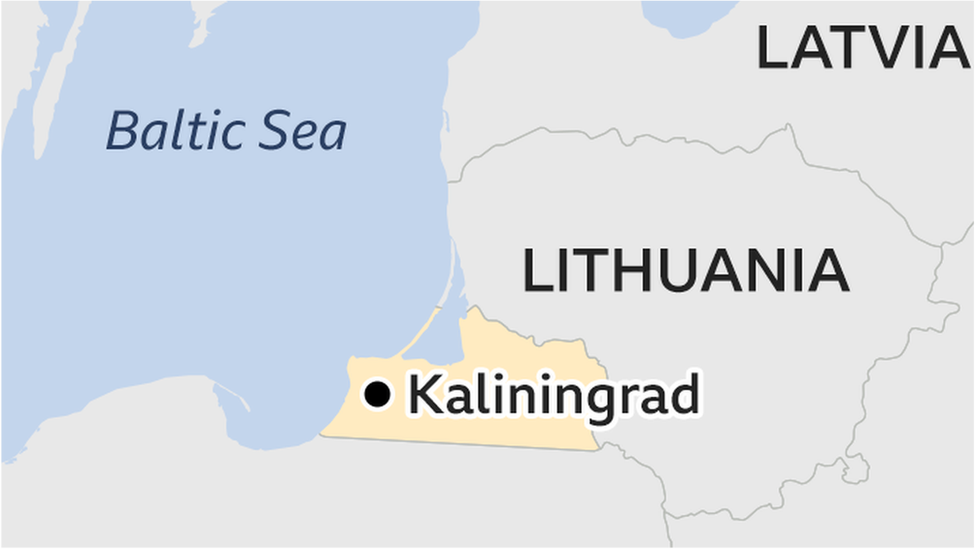Lithuania plans fence on Russian Kaliningrad border
- Published
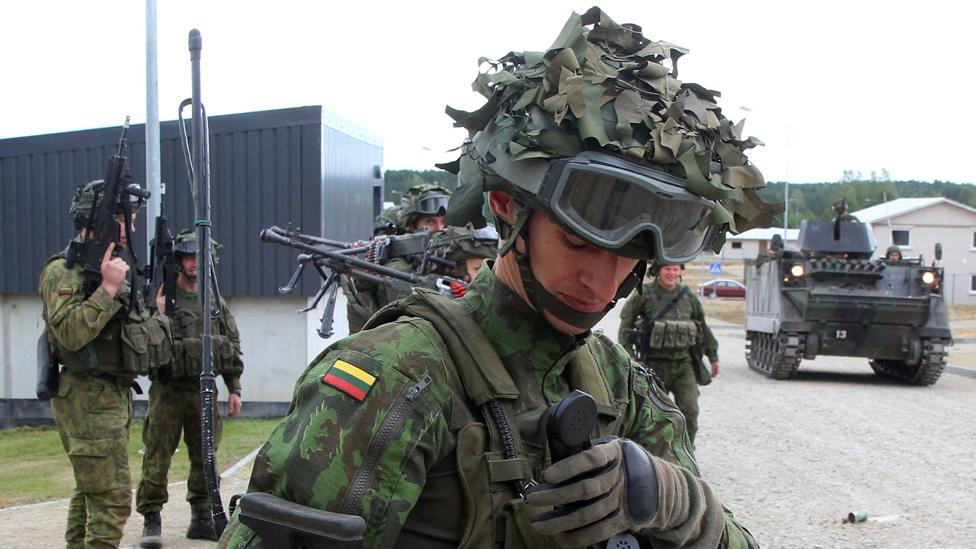
Nato has sent extra forces to train with Lithuania's small army
Lithuania has announced plans to build a fence to boost security on its border with Russia's Kaliningrad enclave.
The move comes amid heightened tensions in the Baltic region, where Nato is deploying extra troops and Russia has installed nuclear-capable missiles.
The fence will cover 130km (81 miles) of border, from Vistytis to the Neman River, which runs to the Baltic Sea. No barrier exists there currently.
Lithuania says it aims to prevent any Russian "provocations" and smuggling.
Lithuanian Interior Minister Eimutis Misiunas said one such provocation was the incident on Estonia's border in 2014, when an Estonian security official was detained by Russia. In August 2015 Russia jailed Eston Kohver on spying charges. But he was freed the following month in a "spy swap" with Russia.
Lithuania aims to complete the 2m-high (6.5ft) fence by the end of this year. Later, border guards will get new surveillance systems, including drones, the country's interior ministry told the BBC.
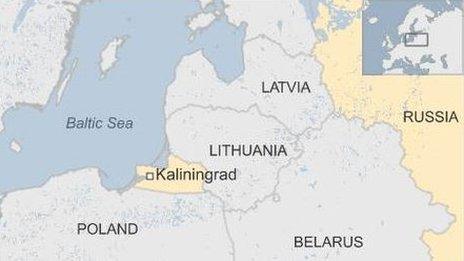
Like its Baltic neighbours, Lithuania was alarmed by Russia's March 2014 annexation of Ukraine's Crimea region.
Russian help for pro-Russian insurgents in eastern Ukraine further fuelled their concern about "hybrid" warfare - that is, acts of aggression like infiltration of special forces and cyber attacks on critical infrastructure.
Soldiers in unmarked uniforms took over Crimea and were nicknamed "little green men". Only a year later did Russian President Vladimir Putin admit that Russian forces had been involved.
'Won't stop tanks'
Nato has begun deploying a US-led army battalion to Poland and three more will go to the three Baltic states, reaching a total of about 4,000 troops. Russia has condemned the move.
Mr Misiunas told the AFP news agency that the fence would cost about €30m (£26m; $32m), with most funding coming from Lithuania's EU partners. Lithuania has allocated €3.6m to it from the state budget.
The EU is also spending €25m this year on modernising border surveillance in Belarus, a major source of cigarette-smuggling into the EU.
The town whose cigarettes are smuggled to UK
Kaliningrad's acting governor, Anton Alikhanov, said Russia approved of anti-smuggling measures, but he played down the significance of the fence. Quoted by Russian Lenta.ru news, external, he joked that Kaliningrad could send some bricks to help Lithuania.
Lithuanian politician Rasa Jukneviciene said "this fence will not stop tanks or other military equipment" but it would help to "reduce the potential threat posed by Russia".
Latvia and Estonia - Nato members like Lithuania - also plan to erect fences along their borders with Russia.
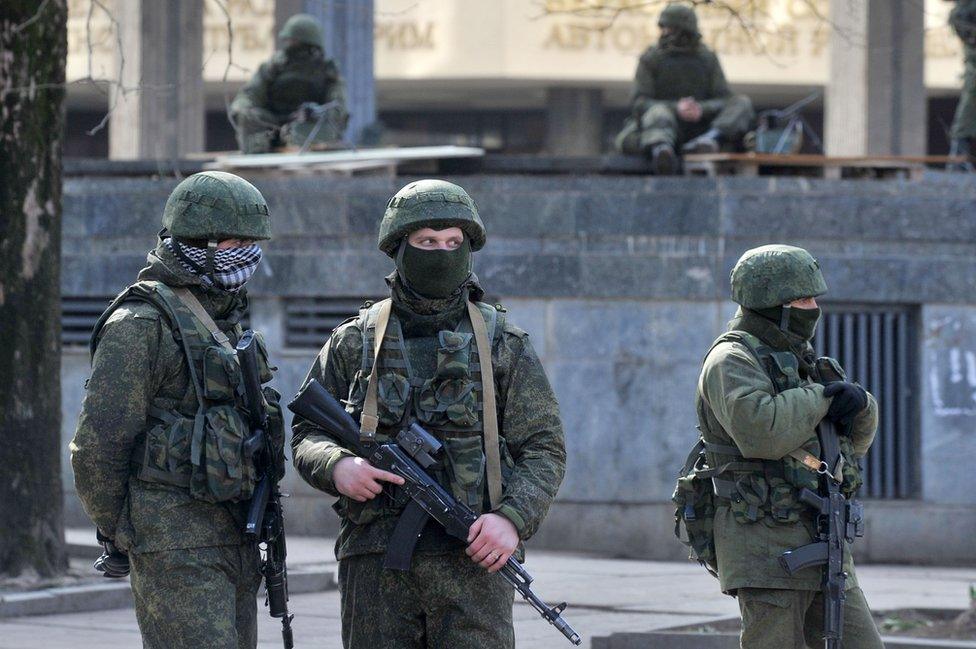
Simferopol, Crimea: Russia's neighbours were rattled by its swift military takeover of Crimea in 2014
In 2015 Poland announced that it would build watch towers along its border with Kaliningrad.
Linas Kojala, director of the Eastern Europe Studies Centre in Lithuania, said smuggling of cigarettes and alcohol into the EU from Kaliningrad was a problem.
But the main motivation for the fence is fear of "little green men" infiltrating, he told the BBC. Russians can cross Lithuania's border easily at the moment, though it is illegal to enter without a visa, he said.
"There is a lot of talk in Lithuania now about hybrid scenarios, like what happened in Ukraine," he said.
In 2015 Lithuania reinstated conscription, which provides about 3,000 extra personnel for the armed forces annually, he said. The total number of service personnel is about 20,000.
The Lithuanian interior ministry told the BBC that by 2020 "the goal is to have fully controlled and monitored borders with Russia and Belarus, at a cost of around €140m".
- Published12 January 2017
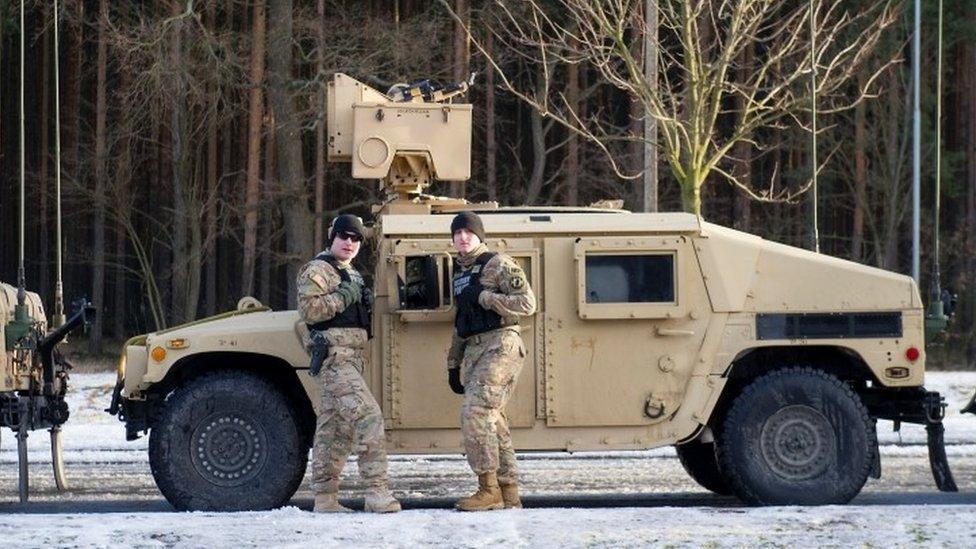
- Published29 October 2016
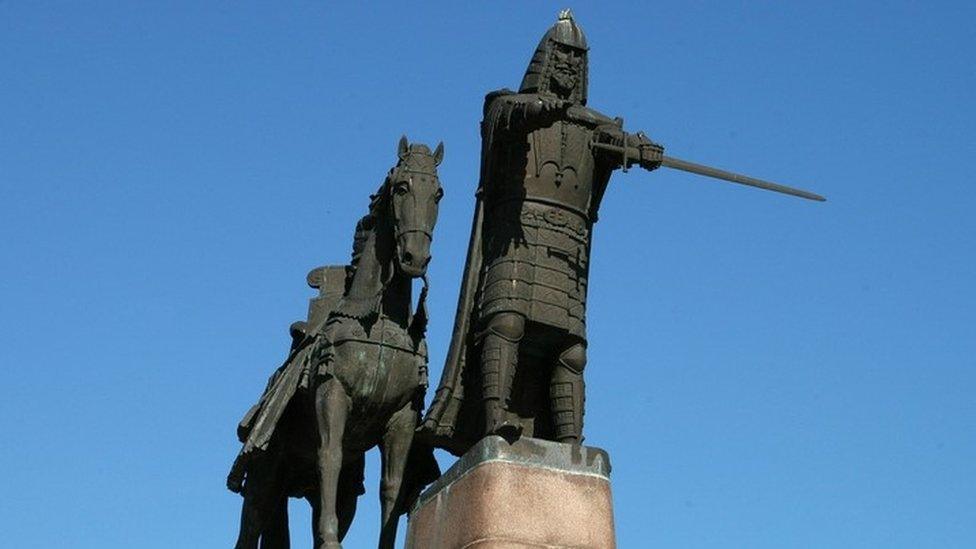
- Published9 October 2016
- Published6 April 2015
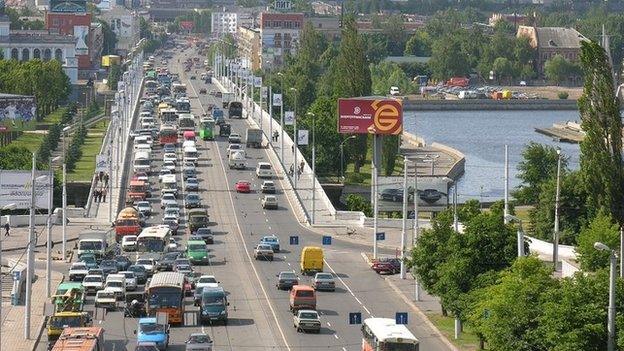
- Published28 August 2015
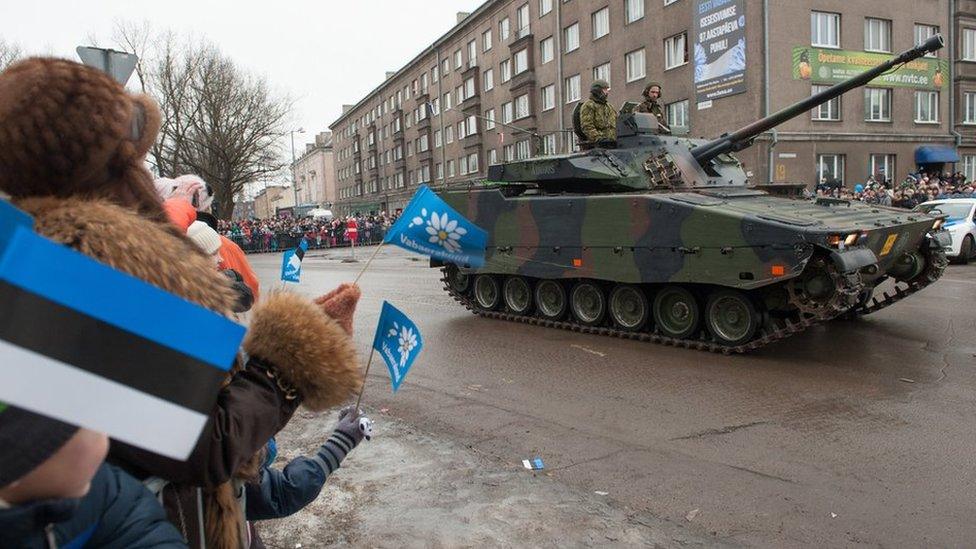
- Published24 February 2015
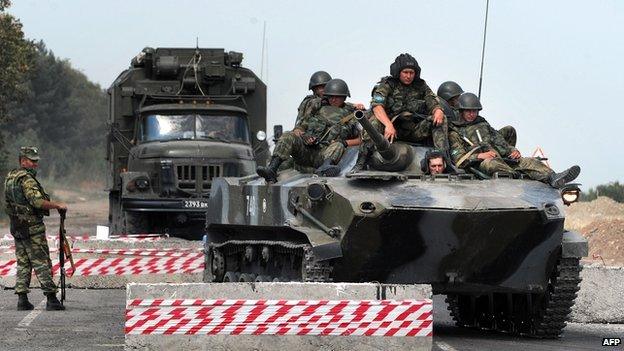
- Published22 August 2023
